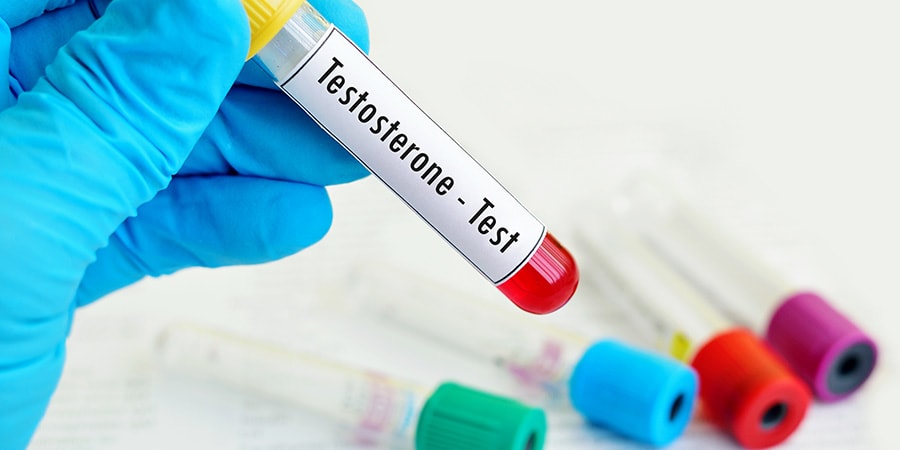
In our last blog for Men’s Health Month, we’d like to guide you through a common condition affecting millions of men – low testosterone.
Testosterone (known as T) is the primary sex hormone in men, produced by the testes. Female ovaries also produce testosterone, but in small amounts. Testosterone plays a key role in sperm production and also regulates sex drive, bone mass, and fat distribution. Testosterone is also responsible for typical male characteristics, including body hair, a deep voice, and larger muscles.
A male’s testosterone level increases from puberty through young adulthood but then naturally decreases around the age of 40. When the body fails to produce enough testosterone, the medical condition is known as hypogonadism, or Low T. According to the Urology Care Foundation, approximately 2.1% of men may have Low T. The percentage is lower for younger men, while as many as 50% of men over 80 years old may have Low T.
CAUSES OF LOW T
Some men are born with Low T, while others can develop it later in life. In addition to aging, some of the causes of Low T may be:
- Injury to the testicles
- Obesity
- Diabetes
- Radiation or chemotherapy for cancer
- Hormone disorders
- HIV/AIDS
- Drug abuse
SYMPTOMS OF LOW T
You may experience one or more of the following symptoms of Low T. Because some of these symptoms are associated with other conditions, or aging in general, it’s important to discuss them with your healthcare provider to determine the cause. A blood test can be used to determine if these symptoms are linked to Low T.
- Low sex drive
- Erectile Dysfunction (ED) or other sexual problems
- Low sperm count; infertility
- Testicular shrinkage
- Depression; moodiness
- Fatigue; decreased energy
- Reduced strength; decreased muscle mass
- Decreased body hair
- Increased body fat
One symptom that may go unnoticed is a loss of bone mass, which could lead to osteoporosis. Therefore, early treatment is key to preventing such a disease.
TREATMENTS FOR LOW T
There are several types of testosterone replacement therapies available, and you should discuss the pros and cons of each with your healthcare provider:
- Injections
- Skin gels
- Patches
- Oral tablets
If you’d like to discuss any concerns you have regarding Low T symptoms with one of our providers, please contact us for an appointment!
If you missed any of our other blogs during Men’s Health Month, take a look at our articles on cardiovascular disease, prostate health, and aging.
The content provided in our website blogs is offered for informational purposes only, and it should not be considered as the practice of medicine or medical advice regarding the diagnosis or treatment of any medical condition or disease. You should consult with a medical professional if you have any questions regarding a condition or disease in relation to your specific healthcare needs. If you feel that you are experiencing a medical emergency, please contact 911 immediately.

